
Syed Hamid
Born: 28th March, 1920, Faizabad (UP)
Father: Mr. Syed Mahdi Hasan
Mother: Mrs. Sitarah Shahjahan Begum
Brothers: Syed Muhammad (AMU Alumni, Hockey and Football Color Holder)
Syed Mustafa (AMU Alumni)
Wife: Mrs. Surayya Hamid
Children: Samar, Saman and Faraz Hamid.
Education:
Born: 28th March, 1920, Faizabad (UP)
Father: Mr. Syed Mahdi Hasan
Mother: Mrs. Sitarah Shahjahan Begum
Brothers: Syed Muhammad (AMU Alumni, Hockey and Football Color Holder)
Syed Mustafa (AMU Alumni)
Wife: Mrs. Surayya Hamid
Children: Samar, Saman and Faraz Hamid.
Education:
Govt. Inter College, Moradabad, Govt. High School, Unnao, State High
School, Rampur
School, Rampur
1937-1939: B.A. Aligarh Muslim University
1939-1941: M.A (English) Aligarh Muslim University
1941-1947: M.A. (Persian) Aligarh Muslim University
(Resident of S.S. Hall - S.S. West, 62)
Member University Hockey Team and Color Holder
Career:
1939-1941: M.A (English) Aligarh Muslim University
1941-1947: M.A. (Persian) Aligarh Muslim University
(Resident of S.S. Hall - S.S. West, 62)
Member University Hockey Team and Color Holder
Career:
Provincial Civil Services: 1943-49
Served in Bijnaur, Moradabad and Buland Shahar (UP)
Joined Indian Administrative Services (I.A.S.) in 1949
i) 1960-65 : Deputy & Joint Secretary, Industries and Foreign Trade, Govt. of India
ii) 1966- Director of Fisheries (Lucknow-UP)
iii) 1966-68: Administrator, Nagar Maha Palika, Allahabad (UP)
iv) 1968-71: Joint Secretary, Planning Commission, New Delhi
v) 1971-75: Joint Secretary, Ministry of Home affairs, New Delhi
vi) 1975-76: Additional Secretary, Ministry of Communications, New Delhi
vii) 1976-80: Founder & Chairman, Staff Selection Committee, New Delhi
viii) 10th June 1980-26th March 1985 : Vice-Chancellor, AMU Aligarh
ix) 1992- Till Date: Honorary Secretary of Hamdard Education Society, New Delhi
x) 2000- Till date: Member, Management Committee, Darul Musannefin
Served in Bijnaur, Moradabad and Buland Shahar (UP)
Joined Indian Administrative Services (I.A.S.) in 1949
i) 1960-65 : Deputy & Joint Secretary, Industries and Foreign Trade, Govt. of India
ii) 1966- Director of Fisheries (Lucknow-UP)
iii) 1966-68: Administrator, Nagar Maha Palika, Allahabad (UP)
iv) 1968-71: Joint Secretary, Planning Commission, New Delhi
v) 1971-75: Joint Secretary, Ministry of Home affairs, New Delhi
vi) 1975-76: Additional Secretary, Ministry of Communications, New Delhi
vii) 1976-80: Founder & Chairman, Staff Selection Committee, New Delhi
viii) 10th June 1980-26th March 1985 : Vice-Chancellor, AMU Aligarh
ix) 1992- Till Date: Honorary Secretary of Hamdard Education Society, New Delhi
x) 2000- Till date: Member, Management Committee, Darul Musannefin
Shibli Academy Azamgarh (UP)- India
xi) 1999-Till Date : Chancellor, Jamia Hamdard, New Delhi
Books:
xi) 1999-Till Date : Chancellor, Jamia Hamdard, New Delhi
Books:
i) Nagar-Khana-e-Raqsaa(n) : Collection of his critical writings published in 1984
ii) Syed Hamid: Ke Gum Usmei(n) Hai(n) Afaaq
Biography by Dr. Najma Mahmood (Dept. of English, AMU Aligarh)
iii) Irfan-e-Syed Hamid: Prof. Asghar Abbas & Dr. Shahabuddin Saquib
(Dept. of Urdu AMU Aligarh)
Syed Hamid was born in an average muslim family of Syed Mehdi Hasan & Sitarah Shahjahan Begum in Faizabad on 28th March, 1920. The family was originally from Moradabad. Syed Mahdi Hasan had a great passion for history, literature and Islamic education. In 1931, Syed Hamid completed 6th grade from Moradabad Inter College and moved to Rampur where his father joined a new job in Estate of Rampur. Just after one year they moved back to Moradabad and completed his Intermediate (12th grade) from Moradabad Inter College in 1937. During his education at Govt. Inter College Moradabad, he was Hockey Captain and represented the college in numerous tournaments. In 1937, Syed Hamid got admission in AMU in B.A. Very soon he also became a member of University Hockey which had Mohammad Hasan Abbasi, Shakoor, Yaseen and Dilbar as front line players. Syed Hamid was a member of the winner team of Inter-Varsity Hockey Tournament held in Aligarh in 1941 under the captaincy of Syed Mohammad Hasan Abbasi. In 1941, he completed his M.A. with English literature and moved to Aftab Hall from Sir Syed West. After just completing M.A. (Previous) in Persian in 1942, he got selected for provincial Services which he joined in 1943 and served in the district of Bijnaur, Moradabad and Buland Shahar. During his provincial service, he completed his M.A. in Persian from AMU in 1947. He had witnessed the tenure of Sir (Dr.) Ziauddin Ahmad and Sir Shah Sulaiman as Vice Chancellors of Aligarh Muslim University and Prof. Abu Bakar Ahmad Haleem (also known as A.B.A. Haleem or ABA Haleem) as Pro-Vice Chancellor. He was very much impressed by these gentlemen who put their best to serve AMU and inherited a lot of their qualities and passion for our beloved alma mater. This was the time when Aligarh had teachers like Prof. Mohammad Habib, Prof. Hadi Hasan, Prof. Zia Ahmad Badayuni and Prof. Rasheed Ahmad Siddiqi. This was also the time when Ale Ahmad Suroor was making inroads to his glory.
Syed Hamid personifies humility and loves the company of humble people. However, his circumstances have not been humble – a former officer of the prestigious Indian Administrative Service, he went on to become the vice-chancellor of Aligarh Muslim University, his alma mater. "That was the greatest honor one ever got". He never rested on his laurels, nor does he like anybody doing that. Many people from the generation of Muslims born immediately after independence find a role model in him. Here is a man who managed to build a sound academic record at a moment in India’s history when Muslims were afflicted with uncertainty.
Association with Aligarh Movement:
After having an illustrious career of 6 years in Provincial and 31 years in Indian Administrative services, Syed Hamid joined his own Alma Mater as its Vice-Chancellor on June 10th, 1980.
Former AMU Vice Chancellor, Col. Bashir Hussain Zaidi once said “AMU Vice-Chancellorship is just like a woman with six husbands- The State Government, The Central Government, The Millat, The Teachers, The Students and The AMU Court”.
No one other than Syed Hamid knows how true, Col. B.H. Zaidi was in his remark. Syed Hamid joined AMU as VC at a very crucial juncture; when AMU community was fighting for its lost minority character and AMU became a political hobnob in the affairs of Ummah. AMU fraternity had already suffered “Dadri trauma”, hundreds of arrest were made, numerous scarifies their lives for the cause and yet AMU did not received its lost Minority Status. This was leadership which formulated the Amendment Act in December 1980, which was later approved in January 1981 by Central Government. Syed Hamid added “Section 5 -2C to expand Aligarh Muslim University’s Role in the betterment of community and specially minorities of India. The Amended Act of 1981 gave student representation to AMU students in the University Court.
His tenure as AMU V-C was marked by very tough, painful decisions, and an unwavering will to stem the rot. His administrative skills as a seasoned bureaucrat came in handy. His seniority in the IAS fraternity (he had only recently retired from service) ensured the respect of Aligarh district magistrate and superintendent of police; his academic record got him the respect of teaching community. That left students to concentrate on their study and stay away from mischief. He played a key role to bring University on normal track which had a lot of distraction due to a prolong 16 year of struggle for Minority Character. He made special arrangements for Curfew bound Aligarh & Moradabad City students to appear in the exams. He took strong exception to bring more than 150 University Staff who were serving abroad on extra ordinary leaves (EOL). This act put him in the front line of opposition from a large section of teaching staff community. A reckless statement from a senior faculty member triggered another chaos in campus. All efforts for a truce were failed. Student went on strike and continued their protest. On 12th May 1981, police entered into the campus and opened fire and an innocent student of S.S. Hall (North), Aftab Ahmad died. University was closed sine-die, hostels were vacated, and actions were taken against student leadership.
Syed Hamid put his best to bring back the past glory of his Alma Mater. The monthly magazine, Tahzeebul Akhlaq, started by Sir Syed Ahmad Khan was restarted again during his tenure. He started Department of Computer Science, Department of Modern Indian Language, and Department of Chemical Engineering. Administrative Block (Popularly known as Registrar Office) was completed during his tenure and Vice-Chancellor’s office which was located next to Victoria Gate (present Provost’s Office of S.S. Hall South) was moved to Administrative Block. For better management Sir Syed Hall was divided into 2 Halls of residence, Sir Syed Hall (North) & Sir Syed Hall (South). A 500 students Hall of residence, Allama Iqbal Hall, 200 women hostel (TW Hostel) in Abdullah Hall, New Guest House, 150 Bed Hospital building in J.N. Medical College & Hospital, Commerce & Law faculty buildings were completed during his tenure. He put a lot of emphasis on Coaching & Guidance Cell of University to develop competitive skills among the students for Indian Civil Services and other competitive exams for different prestigious institutions. His tenure as AMU V-C was marked by very tough, painful decisions, and an unwavering will to stem the rot. His administrative skills as a seasoned bureaucrat came in handy. His seniority in the IAS fraternity (he had only recently retired from service) ensured the respect of Aligarh district magistrate and superintendent of police; his academic record got him the respect of teaching community. That left students to concentrate on their study and stay away from mischief. He would listen politely to student leaders, but sent the message that they better concentrated on their careers. The tenure as V-C was a mixed experience: he succeeded in crushing anarchy, driving ruffians out of the campus, restoring the dignity of Sir Syed’s university, regularizing academic activity. At the age of 65 years, he handed over the rein of AMU to his deputy, Mr. K.M. Bahauddin and moved back to Delhi.
Even after the retirement, his passion for social reforms among Indian muslims did not faded. In 1992, founder of Hamdard Dawakhana and Jamia Hamdard, Hakim Abdul Hameed appointed him Honorary Secretary of Hamdard Education Society. This was a beginning of new phase of Syed Hamid’s life. He started Hamdard Study Circle, a premier coaching and guidance cell for Indian Civil Service competitions for Indian Muslims and other minorities. He also started Hamdard Public School in Delhi. To promote educational awareness among Indian Muslims, Syed Hamid started “All India Taalimi Karwwan in 1995. Syed Hamid with other Muslim intellectuals visited different parts of the country, specially in areas of significant Muslim population and made passionate appeal to Muslims to focus on education for the development of community and nation building. A complete repot of “All India Taalimi Karwaan” have been compiled by AMU PRO Dr. Rahat Abrar and have been published by UP Rabita Committee.
Syed Hamid is one of many “talents” spotted by Hakeem Abdul Hameed to nurture his dream of establishing a University. It was due to Syed Hamid’s untiring efforts and purposefulness that U.G.C. agreed to confer “deemed to be University” status on Jamia Hamdard. In June 2000, the Hamdard Educational Society organized a national seminar on Information Technology Revolution and Educationally Backward Minorities. He also served as a Member of the Jury to decide the prestigious Jawaharlal Nehru Award for International Understanding. He edits the fortnightly magazine “Nation and the World”. He writes regular columns in Urdu newspapers on issues concerning minority education. Recently, he has been nominated as Member of the Steering Committee on the Empowerment of SCs, OBCs and Minorities constituted by the Planning Commission for formulation of Tenth Five-Year Plan.
After the death of Hakeem Abdul Hameed, Syed Hamid have been elected as Chancellor of Jamia Hamdard. Even at the age of more than 87 years, Syed Hamid is still working for the upliftment and betterment of Indian Muslims and other minorities.

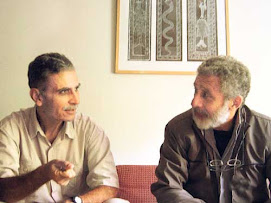
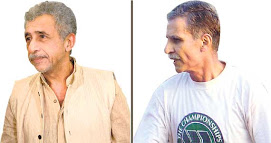




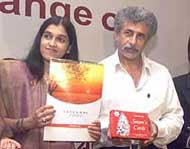










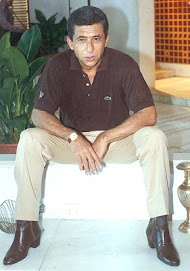


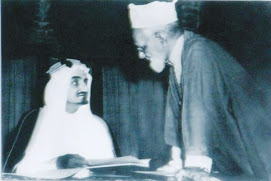

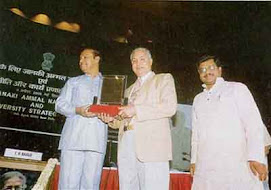
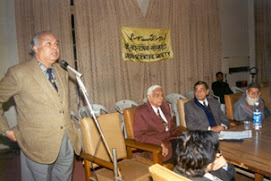
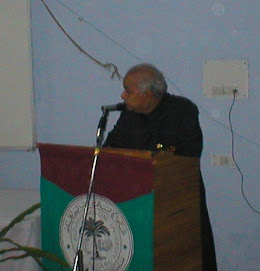














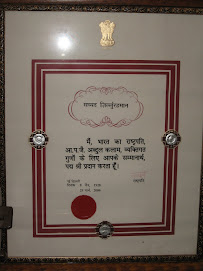
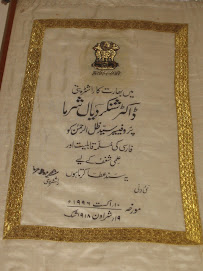



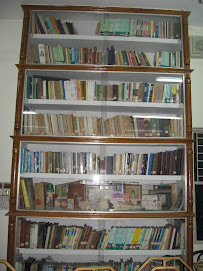
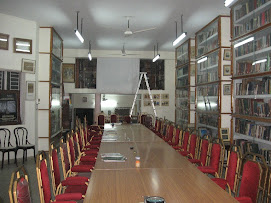
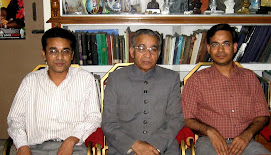
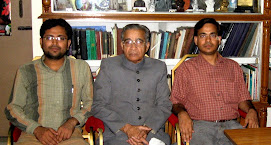




































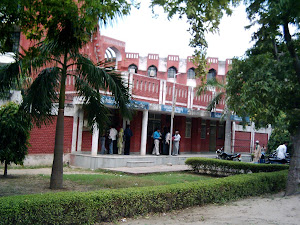
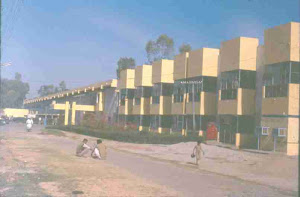


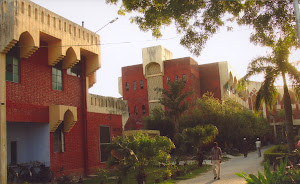
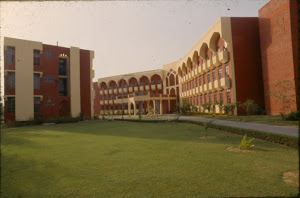





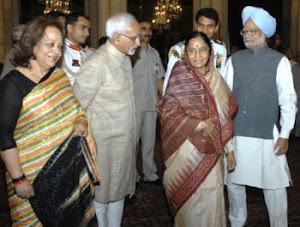
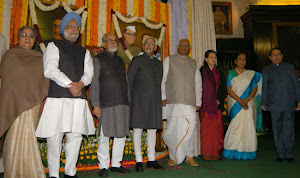
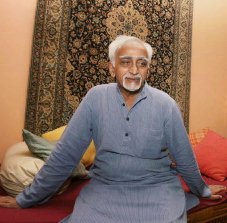
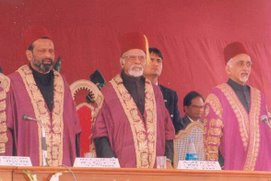

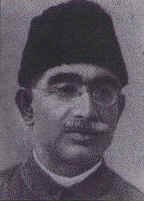




























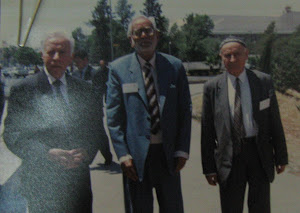







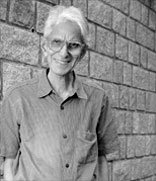






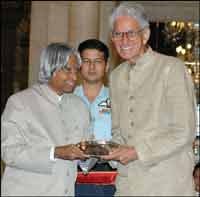



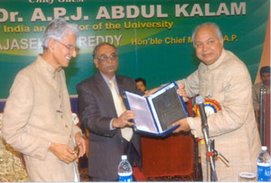

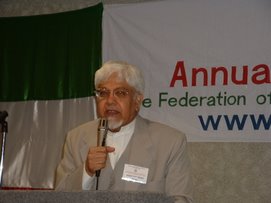
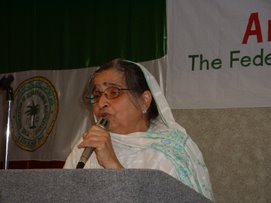
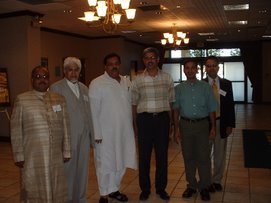
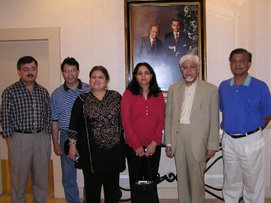




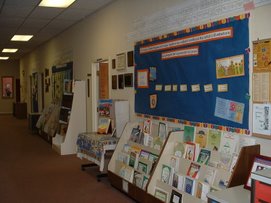



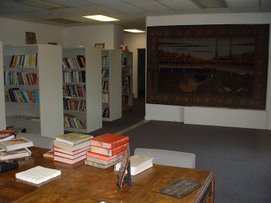

No comments:
Post a Comment